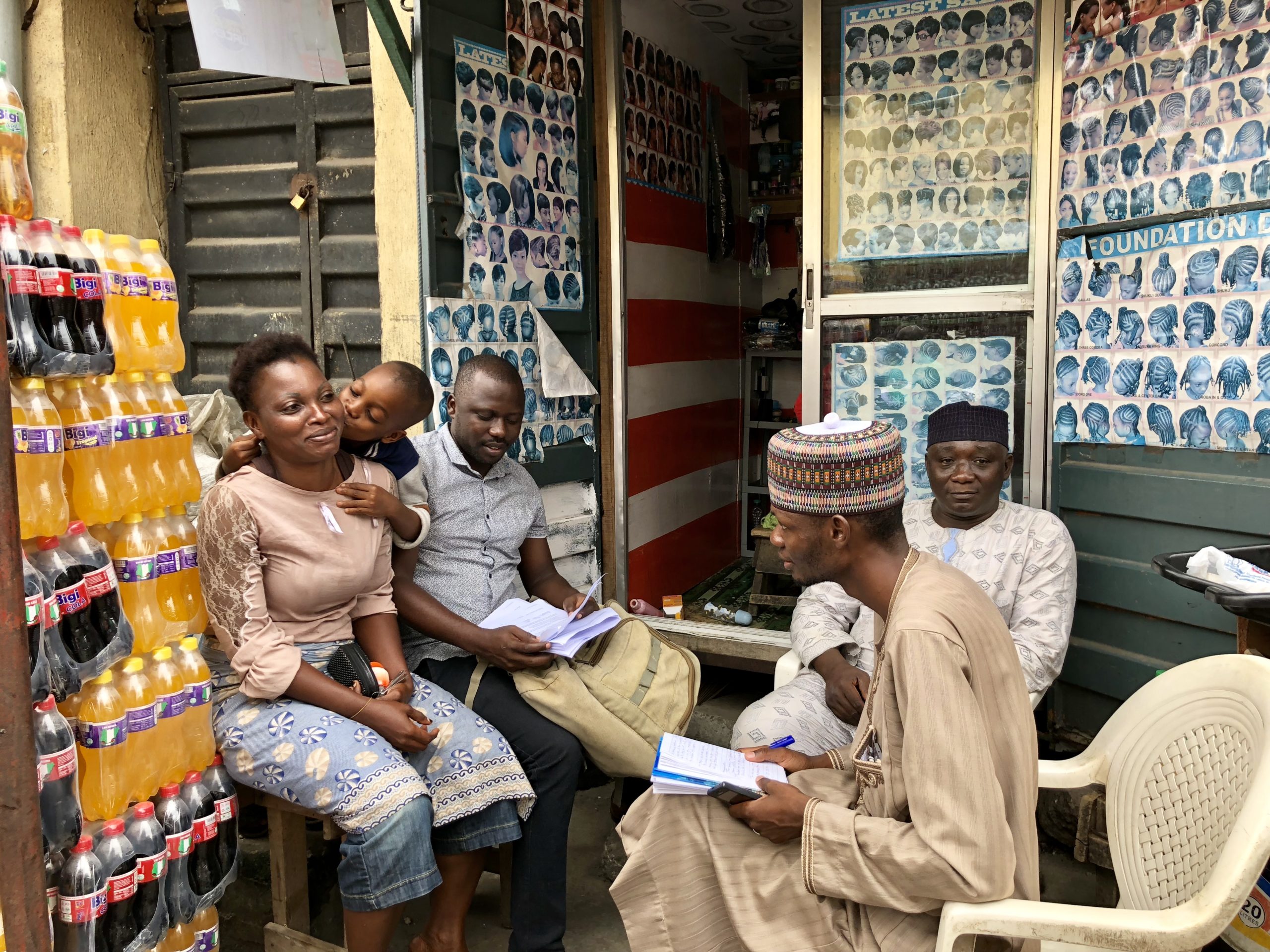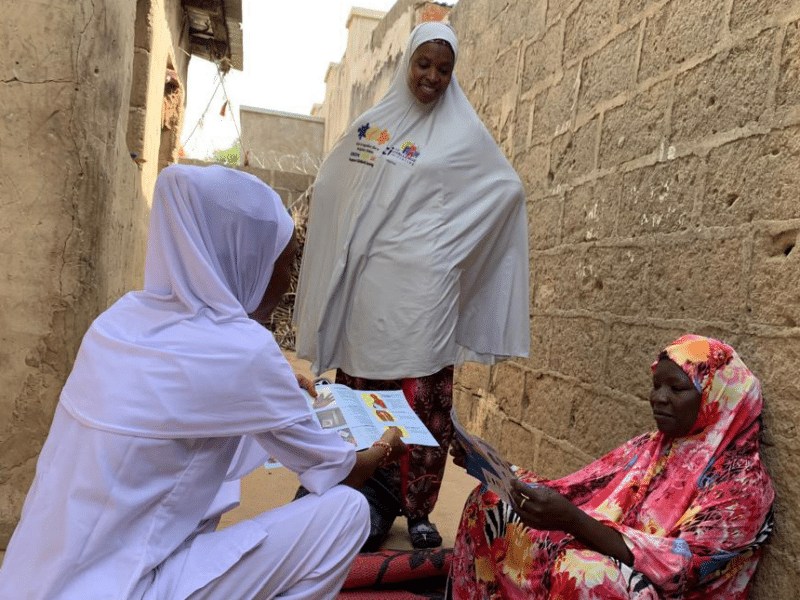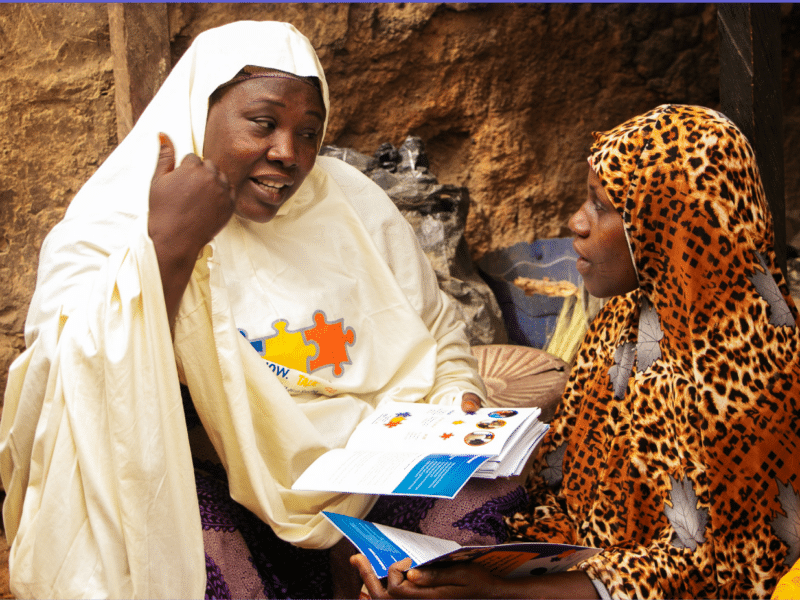A series of successful small pilot programs designed to increase the number of tuberculosis (TB) cases identified and treated in Nigeria has received an extra $1 million from USAID/Nigeria to reach even more Nigerians with symptoms of the contagious lung disease.
The efforts, led by the Johns Hopkins Center for Communication Programs’ Breakthrough ACTION project, saw a significant increase (51 percent) in the number of people with long-term coughing symptoms referred for treatment at health facilities in four Nigerian districts during a 12-week intervention period in 2019.
They did this by engaging small medicine stores, religious leaders and those in market places and transportation hubs, using people outside of the medical community to improve TB case detection.
“We’ve really expanded the types of community actors involved and they have huge potential to impact case detection,” says Joseph Edor, MD, one of the leaders of Breakthrough ACTION’s TB program in Nigeria. “By using nontraditional approaches, we are able to develop ideas we may not have come up with before and to involve people far beyond the health facilities in helping identify possible TB cases.”
The focus of the programs was chosen as part of a human-centered design approach that involved interviews with more than 240 people, the generation of more than 750 ideas and the development and testing of five that seemed most promising. The three that seemed most feasible were then improved and piloted.
TB is one of the leading causes of death in Nigeria, but the nation has one of the lowest TB case detection rates in the world, with fewer than 24 percent of the estimated cases identified in 2017. TB can be cured within six months if treated appropriately, but lack of adherence to treatment is a driver of multidrug-resistant TB. While a lot of work has been done to raise awareness of TB and how to treat it, it has not translated into significant increases in case detection.
One concept developed during the human-centered design process involved what are known as patent and proprietary medical vendors, people who sell over-the-counter pharmaceutical products. In the past, these vendors have some referrals of potential TB cases to local health facilities, but the process could be cumbersome and expensive.
Breakthrough ACTION simplified the referral process. Rather than multiple-day, centrally located trainings, the team engaged the vendors right at their shops through short orientations, significantly reducing costs. Instead of lengthy referral forms, the vendors were given calculators with attached referral slips – to keep the slips on the counter and not hidden in a drawer – and when someone came in complaining that they hadn’t been able to cure their cough after two weeks or more, the vendor could rip off a slip and send them for testing.
The slips included a toll-free TB call center number to find the nearest or most appropriate place to be tested.
Another program engaged religious leaders in a process of helping them to include language about TB testing and treatment in their sermons, while another created a comprehensive social and behavior change campaign called “Be Your Brother’s Keeper.”
The aim of the campaign, implemented in areas with high TB prevalence, is to encourage people to refer those around them with persistent cough to be tested at a health facility. They used posters, stickers, outreach activities and social media in transportation hubs, buses, marketplaces and more.
“The crux of the concept is to inspire Nigerians to care for one another by referring anyone they encounter with a cough that has lasted more than two weeks to an appropriate health facility – in essence, turning all Nigerians into cough monitors,” says CCP’s Jennifer Orkis, MHS, who has also led the process.
Preliminary data comparing the quarter before the interventions to the quarter after the start of the intervention shows a 51 percent increase in presumptive TB cases reported at health facilities in the four pilot areas and a 24 percent increase in positive TB cases identified. Meanwhile, there was an 80 percent increase in the average number of calls per month to the TB call center.
Of the 627 medicine vendors engaged in the program, 45 percent made more than 1,500 referrals using the simplified system, 27 percent of which were traceable to health facilities. Of the 109 religious leaders that participated in the messaging workshop, 93 percent integrated TB messages into their activities, reaching an estimated 153,000 congregants.
The Be Your Brother’s Keeper social media platforms answered 111 questions submitted by users, reaching an audience of more than 170,000.
“This promising data leads us to believe we are having an effect,” Edor says. “By expanding the programs, we hope to be able to find even more untreated TB cases and improve the lives of many more Nigerians.”





